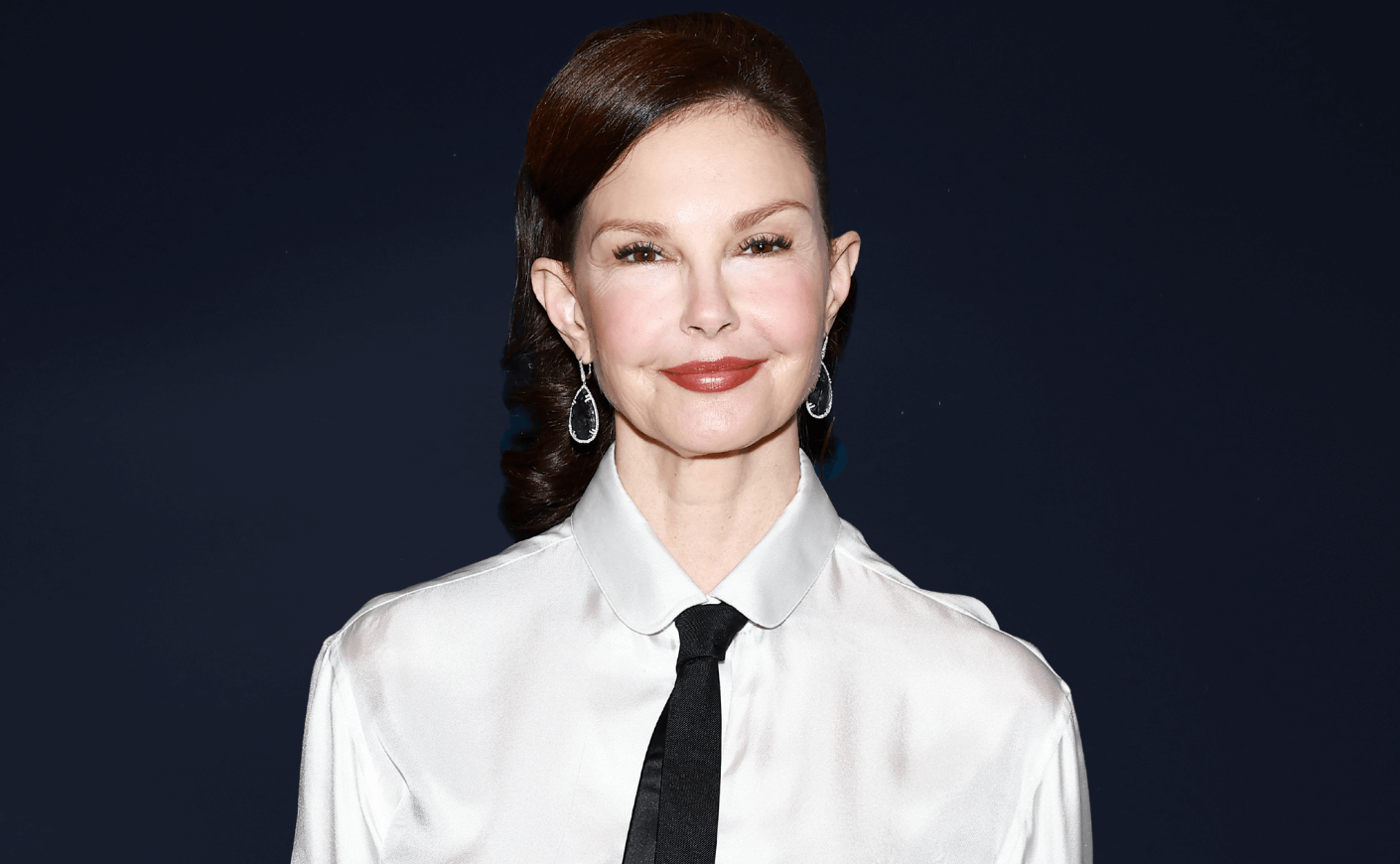Nearly two years after Naomi Judd’s death by suicide, her daughter Ashley Judd is speaking out about the importance of mental healthcare for mothers — and women everywhere. In fact, the actress and activist recently spoke at the White House in support of the Biden administration's newly formed National Strategy for Suicide Prevention, and talked with Katie at a May 14th panel during Forbes’ Moms First Summit (in partnership with Share Our Strength), about what inspired her to get involved in these efforts. “It's very important for mothers to prioritize their mental health,” she explained. "I was very honored to support my mom's journey and I knew that I couldn't do it for her, but I could walk alongside her."
Judd appeared on the panel alongside activist, advocate, and author Tarana Burke, and clinical psychologist and bestselling author Becky Kennedy, Ph.D. There, Judd opened up to Katie about her role in her mother’s mental healthcare: “I had medical power of attorney at times, but Mom was autonomous and her marriage was autonomous. And there were times when I had the legal right to sign her into behavioral health [treatment], but I deferred because she didn't want to go, and ultimately it was Pop’s and her decision,” she revealed. “So what I was left with is my feelings about it, and that's where I was powerless. My life would get unmanageable if I didn't put the focus on myself and take care of myself —and I have a right to a good life. And I was giving my mom hope when I was happy.”
Naomi died in April 2022 at the age of 76; at the time, Judd and her sister Wynonna announced to the public that they had lost their mother “to the disease of mental illness.” Now Judd has revealed more about her mother's last moments.
“There was this dynamic where I saw her suffer, but she took joy from my good life and she was so proud of me. Being proud of me was the joy of her life,” Judd told Katie. She also opened up about her mom’s final moments: “I had the honor of walking her home as she was being inhaled into the infinite mercy of God. And I was saying to her, ‘I saw how much you suffered. Go be with your daddy, be with your brother, be free. All was forgiven long ago.’”
Now, she's prioritizing the mental health of other mothers in her life. “I have this robust chosen family and my chosen sisters," she says. "We’re always supporting each other's mental health and they're all moms, and I'm a bonus aunt to their kids.”
The conversation on the panel also addressed how often mothers struggle with finding their peace in a world that values busyness and "hustle culture." Dr. Kennedy, once dubbed “The Millennial Parenting Whisperer” by TIME, told Katie that she's noticing a shift in what women want. “I think in a hopeful way, moms are very aware of how the system around us just does not set us up for success,” she said. “They notice how much is expected of us, how it feels like there's no way to be a good enough mom, a good enough partner, and good enough at work — and yet we're expected to do all of those things at 100 percent across the board, and there aren't enough hours of the day.” She added, “[Moms] want to band together. They're ready to set boundaries, they're ready to say no. They're ready to feel worthy. They're ready for structural support.”
Burke has been seeing this same need for support across all her areas of work, from the young Black girls she’s mentored in Alabama to the sexual abuse survivors she inspired when she started the #MeToo movement. “These little Black girls in rural Selma, Alabama needed the same thing as all of these women that started saying Me Too on the internet," Burke told Katie. "They needed to be seen and heard and recognized and believed. People need validation.”
Events like this panel, which was spearheaded by Reshma Saujani — founder of Girls Who Code and Moms First — give Burke hope that this goal is achievable, especially when women assemble and use the power of their voices. “People tend to look at women or mothers or survivors of sexual violence, and they forget that we’re also voters. They forget that we care enough to come together,” she said.
“We are mothers — we've done the hardest work that there possibly is," says Burke. "We've survived the hardest things there are to survive. But we’re also a constituency when you put us all together. So we have to keep gathering the way that we do.” She explains, “This is scary to [our political opponents]. When we get up at 8 o'clock in the morning and we come to [events] like this, that's a scary sight to them. They’re like, ‘God dammit. They got mothers together again.’”
Ultimately, Burke believes that women already have the tools they need to enact change: “We’re all right," she says. "We're much better than we think.”









